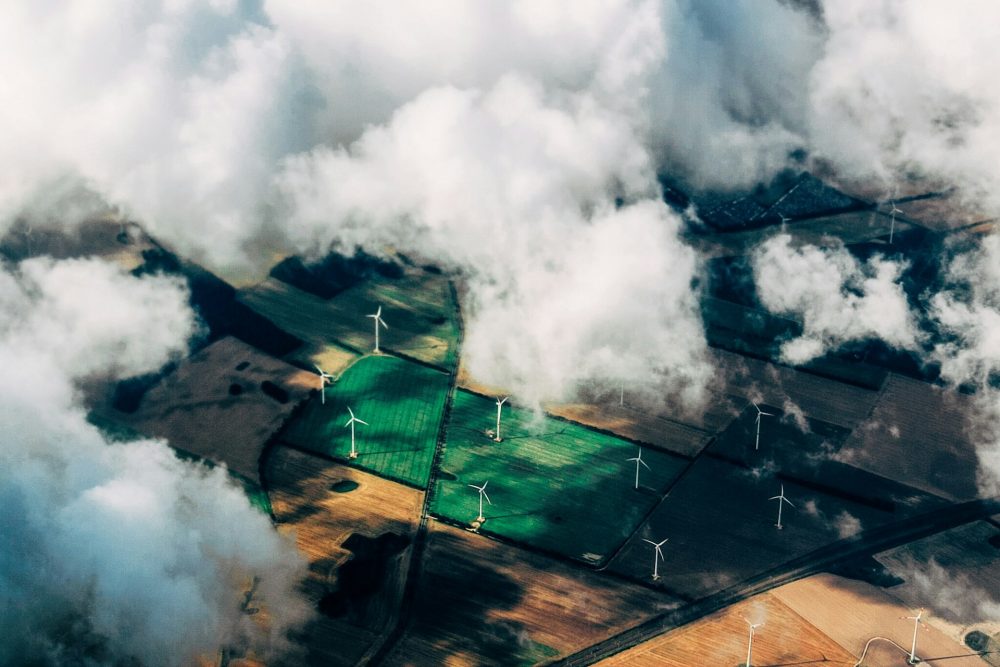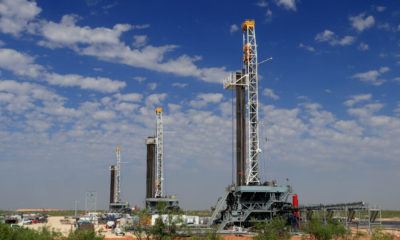Featured
Bunge and Chevron Bought an Argentinean Biodiesel Seed Producer
In the past two years, Bunge – the world’s largest oilseed crusher, which had revenues of $67.2 billion in 2022 – partnered with Chevron to crush oilseeds for renewable diesel production, and with seed manufacturer Corteva to adapt crops for biofuel feedstocks. According to the U.S. Department of Energy, renewable diesel emits 4.2% less carbon dioxide than biodiesel and normal diesel.

The giants Bunge and Chevron’s Renewable Energy Group, a subsidiary of Chevron Corporation, purchased Chacraservicios, an Argentinean company dedicated to the production of camelina sativa, a seed high in vegetable oil content, which is very useful for the elaboration of biofuels.
According to the companies, the Argentinean agricultural products company will contribute to the global supply chains of Bunge and Chevron, with the incorporation of a new source to satisfy the growing demand for fuels with low carbon emissions. In this way, the multinationals expand their presence in the renewable energy sector.
“In a joint project and consultancy with the U.S. University of Montana, the selection and development of cultivars were carried out, which today the company produces in our country. Camelina cultivation is aimed at the production of oil, whose consumption has grown worldwide due to its application in the development of biofuels and its excellent properties for human or animal nutrition,” the Argentine company detailed on its website.
Read more on the subject and find the latest business headlines of the day with our companion app Born2Invest.
Bunge partnered with Chevron to crush oilseeds for renewable diesel production
According to the U.S. Department of Energy, renewable diesel emits 4.2% less carbon dioxide than biodiesel and normal diesel. In addition, it is chemically equivalent to petroleum diesel and almost identical in its performance characteristics. This fuel can be used in conventional diesel engines as an alternative to petroleum diesel.
These properties make it attractive to companies seeking to reduce pollution levels in their supply chain. However, the production of renewable diesel is dependent on the increased supply of oilseeds from crops such as camelina sativa and soybeans.
Although the financial details of the transaction were not disclosed, Fernando Candia, Bunge’s vice president of Carbon Solutions, said, “Throughout our business, our decision-making process includes a focus on carbon. Investing in this new oilseed crop is another step toward our goal of expanding into lower carbon-intensive feedstocks to help meet the growing demand for renewable fuels.”
In the past two years, Bunge – the world’s largest oilseed crusher, which had revenues of $67.2 billion in 2022 – partnered with Chevron to crush oilseeds for renewable diesel production, and with seed manufacturer Corteva to adapt crops for biofuel feedstocks.
In addition, a month ago, it created a world agribusiness giant by acquiring Viterra, a company of the Swiss Glencore for a total of US$ 8200 million. Bunge, in turn, has a shareholding in Argentina in Terminal 6 of San Martin Port, the biggest cereal port in the country. According to the last data available from the Rosario Stock Exchange in 2021, it was the fourth largest exporter of grains and by-products in Argentina with 12.7 million tons.
Founded in 2003, Chacraservicios is, since 2019, part of the leading Italian company in the bioenergy field, Adamant Group. It has its own plant for camelina oil extraction in Pigüé, Buenos Aires province, as well as a seed processing and storage facility in the Buenos Aires town of Pergamino.
“Agricultural innovation is driving the development of renewable fuels around the world, and opportunities like this are helping Chevron expand our portfolio of affordable, reliable, low-carbon fuels. Together with Bunge, Chevron Renewable Energy Group looks forward to working with the Chacraservicios team on flour and oil processing innovations,” said Natalie Merrill, senior vice president of business development, Chevron Renewable Energy Group.
__
(Featured image by Engin_Akyurt via Pixabay)
DISCLAIMER: This article was written by a third party contributor and does not reflect the opinion of Born2Invest, its management, staff or its associates. Please review our disclaimer for more information.
This article may include forward-looking statements. These forward-looking statements generally are identified by the words “believe,” “project,” “estimate,” “become,” “plan,” “will,” and similar expressions. These forward-looking statements involve known and unknown risks as well as uncertainties, including those discussed in the following cautionary statements and elsewhere in this article and on this site. Although the Company may believe that its expectations are based on reasonable assumptions, the actual results that the Company may achieve may differ materially from any forward-looking statements, which reflect the opinions of the management of the Company only as of the date hereof. Additionally, please make sure to read these important disclosures.
First published in El Cronista, a third-party contributor translated and adapted the article from the original. In case of discrepancy, the original will prevail.
Although we made reasonable efforts to provide accurate translations, some parts may be incorrect. Born2Invest assumes no responsibility for errors, omissions or ambiguities in the translations provided on this website. Any person or entity relying on translated content does so at their own risk. Born2Invest is not responsible for losses caused by such reliance on the accuracy or reliability of translated information. If you wish to report an error or inaccuracy in the translation, we encourage you to contact us.

-

 Africa1 week ago
Africa1 week agoBLS Secures 500 Million Dirhams to Drive Morocco’s Next-Gen Logistics Expansion
-

 Fintech2 weeks ago
Fintech2 weeks agoRipple Targets Banking License to Boost RLUSD Stablecoin Amid U.S. Regulatory Shift
-

 Impact Investing3 days ago
Impact Investing3 days agoSustainable Investments Surge in Q2 2025 Amid Green and Tech Rebound
-

 Biotech1 week ago
Biotech1 week agoBiotech Booster: €196.4M Fund to Accelerate Dutch Innovation





















